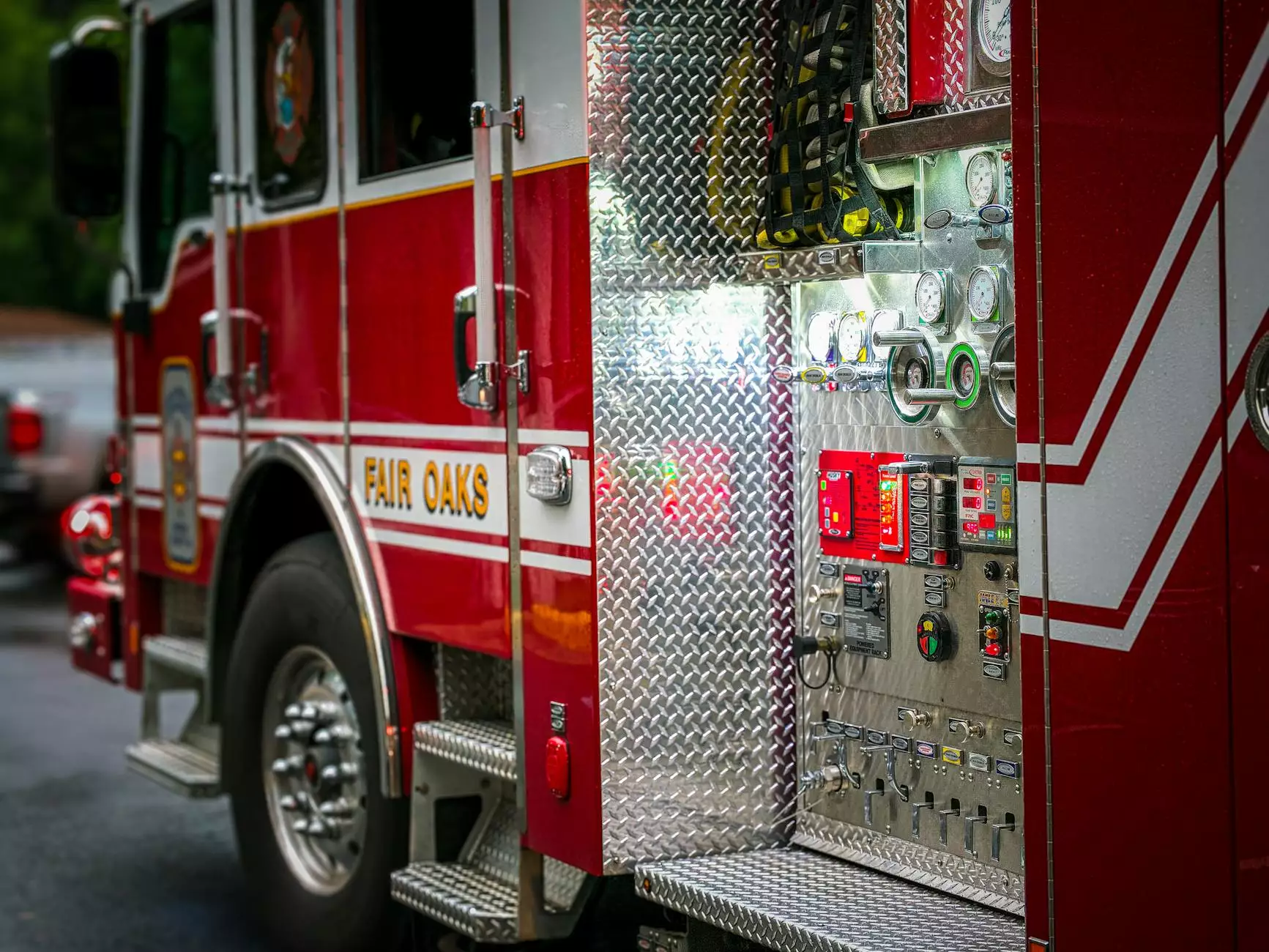Firefighter Communication and Its Importance in Telecommunications

Introduction
In the world of telecommunications, where reliable and uninterrupted services are paramount, effective communication is crucial during emergencies. Just like firefighters depend on efficient communication to coordinate their efforts, telecommunications companies also rely on a similar framework to ensure the safety of their infrastructure, personnel, and ultimately, their customers. This article explores the importance of firefighter communication within the field of telecommunications and highlights its significant role in the face of emergencies.
Telecommunications and Its Connection to Firefighter Communication
Telecommunications companies, such as Teleco.com, play a critical role in providing essential services like phone lines, internet connectivity, and data networks. Their infrastructure, involving intricate systems and installations, is susceptible to numerous risks, including fires and other hazardous events. Similar to how firefighters communicate during emergencies, these companies deploy advanced communication systems to ensure efficient coordination and response.
The Need for Effective Communication
During emergency situations, clear and concise communication is paramount for firefighters and telecommunications crews alike. While the language of "firefighter communication" may differ slightly from that of telecommunications professionals, the underlying principles are the same: prioritizing clarity, accuracy, and precise instructions to ensure proper understanding and coordination among team members.
Ensuring Safety and Efficiency
Effective communication among firefighters helps prevent further risks, saves lives, and minimizes damage. Similarly, in the field of telecommunications, efficient communication guarantees the safety of personnel and the prompt resolution of any issues that may arise during emergencies. By employing the language and techniques used by firefighters to communicate effectively, telecommunications companies can enhance the efficiency of their emergency response procedures.
Coordinating Emergency Response Efforts
During crisis situations, firefighters rely on precise communication channels to coordinate their efforts seamlessly. This level of coordination helps prevent duplication of tasks and optimizes resource allocation. Telecommunications companies follow a similar course of action by employing dedicated communication protocols and real-time monitoring systems. This allows them to promptly identify and address emergencies, leading to efficient incident management and minimal service disruptions for customers.
Firefighter Communication Techniques in Telecommunications
The language and techniques used by firefighters have been adapted for the unique needs of the telecommunications industry. This adaptation ensures effective communication between various teams involved in emergency response, including network engineers, technicians, field workers, and executive personnel. Some key techniques adopted from firefighter communication include:
1. Standardized Terminology
Just as firefighters use standardized terminology to convey specific information accurately, the telecommunications industry employs a similar approach. Terminology, codes, and abbreviations are utilized to express distinct instructions, ensuring that information is communicated precisely and without misinterpretation.
2. Clear and Concise Instructions
In high-pressure situations, clear and concise instructions are crucial to ensure swift and accurate responsiveness. Telecommunications professionals learn to provide concise updates, directives, and warnings, helping their teams act promptly and efficiently.
3. Real-time Communication
Timely and accurate information is vital during emergencies. Telecommunications companies utilize advanced communication technologies to enable real-time information sharing among team members, ensuring that everyone has access to the latest updates and instructions.
4. Collaboration and Teamwork
In both firefighting and telecommunications, collaboration and teamwork are the foundations of a successful emergency response. Just as firefighters work in cohesive units, telecommunication professionals seamlessly collaborate to address any issues that arise, leveraging their collective expertise and knowledge.
The Role of Teleco.com in Firefighter Communication and Emergency Response
As a leading provider of Telecommunications, IT Services & Computer Repair, and Internet Service Providers, Teleco.com prides itself on prioritizing efficient and effective communication during emergencies. By adopting firefighter communication techniques and infrastructure safeguarding practices, Teleco.com ensures the reliable continuity of their services even in the face of potential risks.
Conclusion
Firefighter communication, with its focused, concise, and professional approach, serves as a valuable model for the telecommunications industry. Through the adaptation of firefighter communication techniques and the establishment of communication protocols, telecommunications companies like Teleco.com can enhance both safety and efficiency during emergencies. By prioritizing accurate and swift communication, they are better poised to maintain uninterrupted services, safeguard infrastructure, protect personnel, and provide exceptional customer support.




